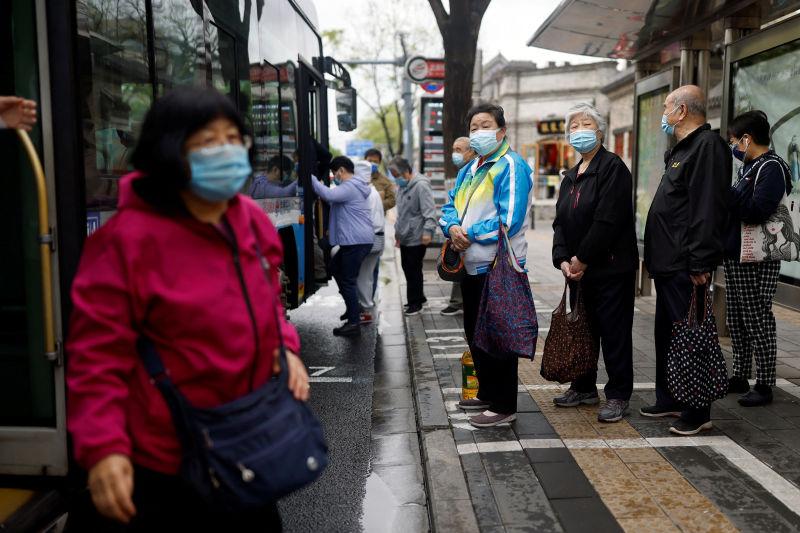Beijing closed residential compounds, office blocks and a university on Thursday as more Covid-19 cases were found, while the city’s 22 million residents embarked on more mass testing aimed at averting a Shanghai-like lockdown.
Universal Studios in Beijing announced it would require visitors to show negative test results before they could enter the theme park, starting on Friday, while authorities closed some schools, entertainment venues and tourist sites.
Across Beijing, positive cases were found among the nearly 20 million samples acquired in the first round of mass testing, but numbers remained small. The city on Thursday reported 50 new infections for April 27, up from 34 a day earlier.
Since April 22, Beijing has found more than 160 cases, more than half in Chaoyang, the city’s most populous district known for its nightlife, malls and embassies.
Despite the low caseload, Beijing remained on edge. The capital has tried to avoid disrupting its economy, allowing residents to go to work even as they get tested, unless infections are found and localised lockdowns are required.
Meanwhile, Shanghai is making more resources available to improve vaccination rates among the elderly as daily case numbers decline and it looks for a way out of four weeks of stringent lockdown restrictions.
The city, battling China’s biggest ever coronavirus outbreak, saw new asymptomatic cases fall to 9,330 on April 27, down 22% from a day earlier and its lowest rate in 24 days, with symptomatic infections also down by almost a fifth.
Shanghai Outbreak Still Critical
With the outbreak still at a critical stage, every district in Shanghai is now coordinating “prevention and control” work with a vaccination drive focusing on elderly people, said Zhao Dandan, the deputy director of the municipal health commission.
When the outbreak in Shanghai began, new infections were under 100 a day in March 1-10 before doubling and then surging to more than 700 by March 20. By the end of March, Shanghai was reporting thousands of new infections, prompting a citywide lockdown and upending the lives of its 25 million residents.
“We’ll have to stay at the dormitory first, then come back to work after the lockdown is lifted,” said a migrant worker named Wu, who arrived in Beijing on Wednesday after a 10-hour train journey with a friend.
The two were to begin work in a canteen of the Beijing University of Technology, but that did not happen after residential compounds next to the university went into a lockdown. After a long discussion with staff at the university, they were told to go stay at a dormitory under lockdown.
“We can cook in the dormitory and I’m sure it’s only a matter of time until the lockdown is lifted,” Wu said.
- Reuters, with additional editing by George Russell
READ MORE:
Ebbing Covid Wave Slows Decline in Hong Kong Home Prices
China Industrial Profits Rise Despite Spread of Covid
Shanghai Traders Urge Boost to Markets, Covid-Hit Business
























